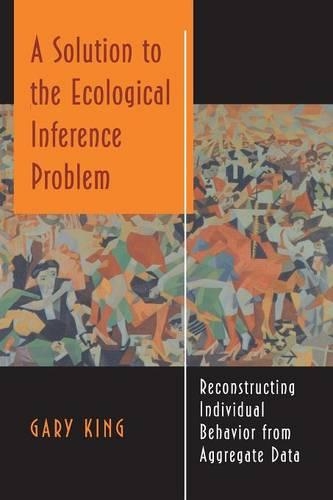
A Solution to the Ecological Inference Problem: Reconstructing Individual Behavior from Aggregate Data
(Paperback)
Publishing Details
A Solution to the Ecological Inference Problem: Reconstructing Individual Behavior from Aggregate Data
By (Author) Gary King
Princeton University Press
Princeton University Press
17th June 1997
United States
Classifications
Professional and Scholarly
Non Fiction
Behaviourism, Behavioural theory
300.72
Physical Properties
Paperback
346
Width 197mm, Height 254mm
539g
Description
This text aims to provide a solution to the ecological inference problem, which has plagued users of statistical methods for over 75 years: How can researchers reliably infer individual-level behaviour from aggregate (ecological) data In political science, this question arises when individual-level surveys are unavailable (for instance, local or comparative electoral politics), unreliable (racial politics), insufficient (political geography), or infeasible (political history). This ecological inference problem also confronts researchers in numerous areas of major significance in public policy and other academic disciplines, ranging from epidemiology and marketing to sociology and quantitative history. The book begins with a qualitative overview, readable even by those without a statistical background. It then unifies the apparently diverse findings in the methodological literature, so that only one aggregation problem remains to be solved. Finally, the author presents his solution, as well as empirical evaluations of the solution that include over 16,000 comparisons of his estimates from real aggregate data to the known individual-level answer.
Reviews
"For decades, market researchers and statisticians have lamented their inability to deduce individual behavior from data on groups. But Gary King ...has come up with a formula that finally cracks this nut."--Business Week
Author Bio
Gary King is Professor of Government at Harvard University. He has authored and coauthored numerous journal articles and books in the field of political methodology, including Designing Social Inquiry: Scientific Inference in Qualitative Research (Princeton).
